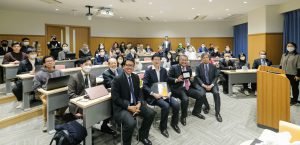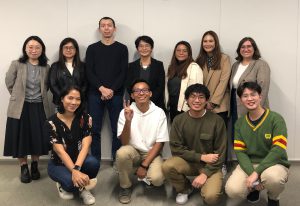概要報告
,
GraSPP Research Seminar
On May 27, 2024, GraSPP hosted a research seminar, “Macroeconomic policy challenges amid global uncertainty: a central banker’s perspective,” as one of its Economic Policy, Finance & Development Series. The seminar was jointly hosted by the Asian Development Bank Institute (ADBI) and Bank Indonesia Representative Office in Tokyo. Senior Deputy Governor Destry Damayanti of Bank Indonesia (central bank) was the speaker.
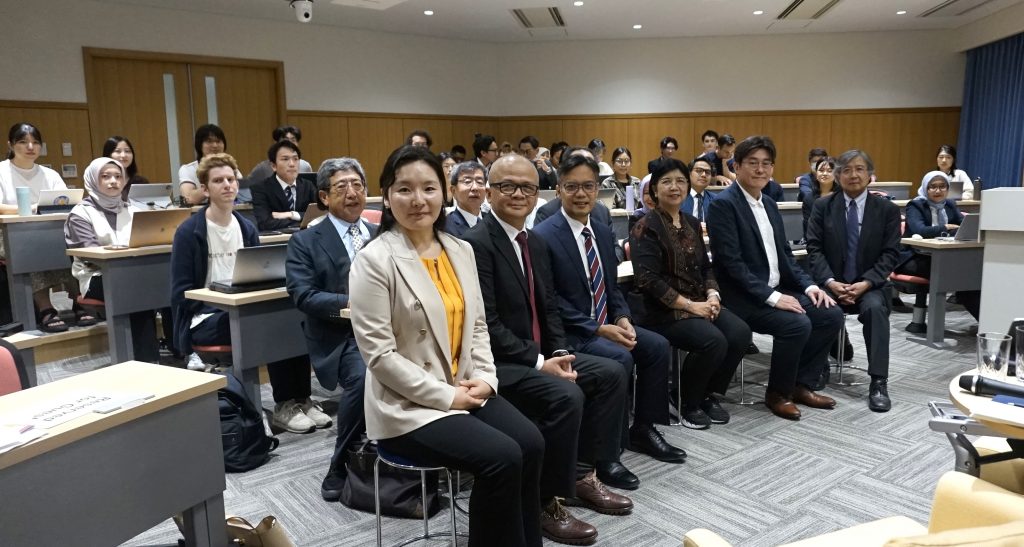
Background
The global economy faces heightened risks and uncertainties due to tightening monetary policy in advanced countries and deepening geopolitical tensions. With such challenges, Bank Indonesia continues optimizing the policy mix responses to control price levels and maintain currency stability. Indonesia’s economy remains resilient despite the global uncertainty, supported by solid domestic demand. On the regional front, Bank Indonesia has been working on its local currency transaction (LCT) framework to promote the use of local currencies in bilateral trade transactions with several countries over the past few years. The LCT framework aims to strengthen cross-border trade, enhance regional financial market stability, and deepen the local currency market in the Asian region. This initiative aligns with the financial integration efforts in the region to facilitate the broader use of local currencies.
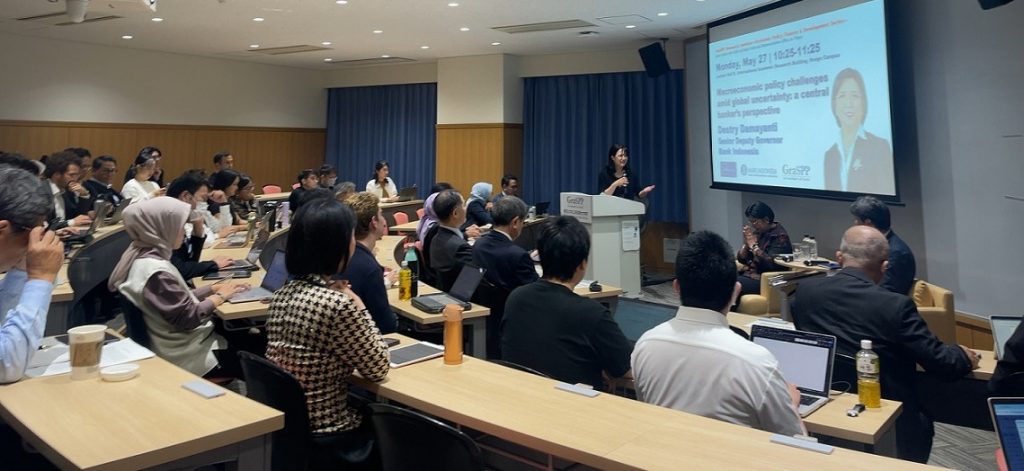
Main talking points
Following Dean Daiji Kawaguchi’s welcome remarks, Senior Deputy Governor Destry Damayanti shared her insights into current macroeconomic policy challenges amid global uncertainties and several critical issues from a central banker’s perspective.
After the COVID pandemic, policymakers realized that the role of Bank Indonesia, as the central bank, could not solely focus on stability but additionally had to promote sustainable economic growth with the three policy pillars: first, monetary policy to maintain price and exchange rate stability, second, macroprudential policy to maintain financial system stability to support sustainable economic growth, and third, payment system policy to ensure money circulation, including digitalizing non-cash payment systems in a digital-economic era.
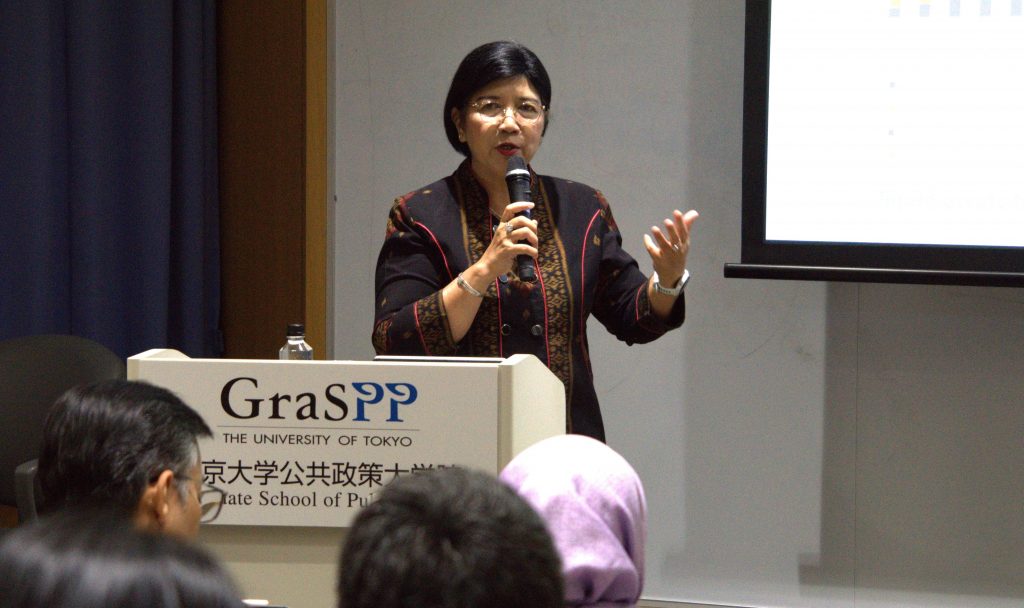
Indonesia achieved solid economic growth but faces challenges amid geopolitical risks and global financial market uncertainty, as is the case with developing and developed countries. Indonesia remains in the development stage, requiring much foreign capital and investment, while the banking sector is the main funding source for economic growth.
Bank Indonesia adopts a policy mix aiming at a virtuous cycle of stability, growth, and inclusive and green development. Its monetary and macroprudential policy mix is the main component. At the same time, measures to address payment systems, financial market deepening, and green and inclusive economy finance are implemented as complementary and supporting policies. Monetary policy is pro-stability, and the other four components are pro-growth.
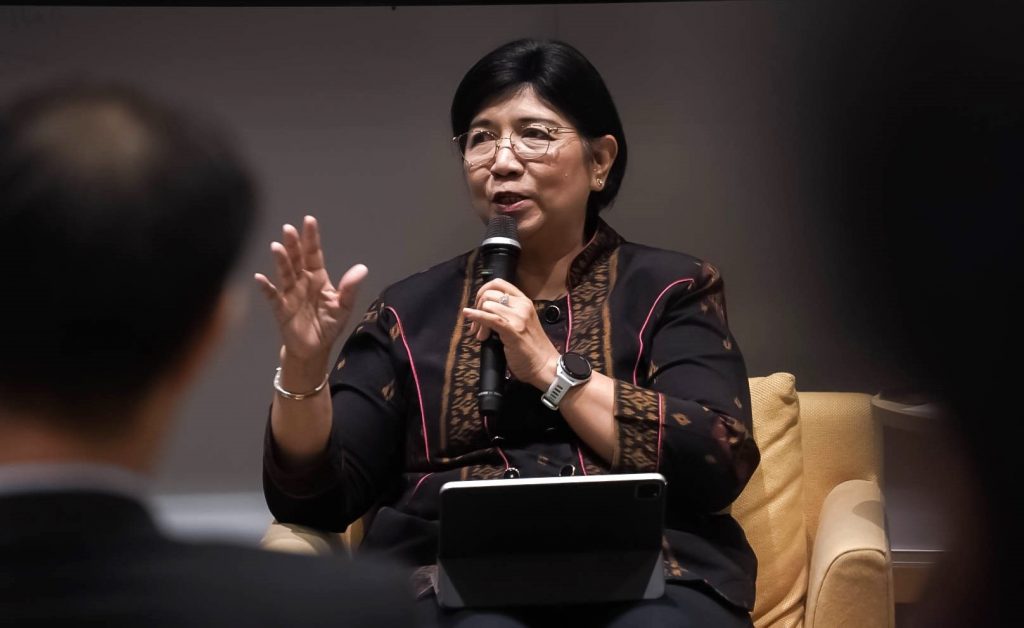
Indonesia’s national economic policy mix aims to mitigate the adverse impacts of global risk spillovers and to maintain national economic recovery momentum. Five global risks remain prevalent: slower and divergent economic growth, gradual disinflation in advanced economies, lasting higher interest rates, capital flow reversal, and strong US dollars. To mitigate these risks, Indonesia’s national economic policy mix responds with fiscal-monetary policy synergy, financial stability policy coordination, acceleration of digitalization, down-streaming of natural resources, and trade-investment-infrastructure development.
Structural reforms are a prerequisite for unlocking Indonesia’s economic potential. Indonesia is the largest archipelagic nation in a strategic location with the fourth-largest population in the world. It is rich in mineral resources needed for energy transition and has high renewable energy potential. Downstreaming natural resources to form a high-value-added ecosystem will enable Indonesia’s economic transformation.
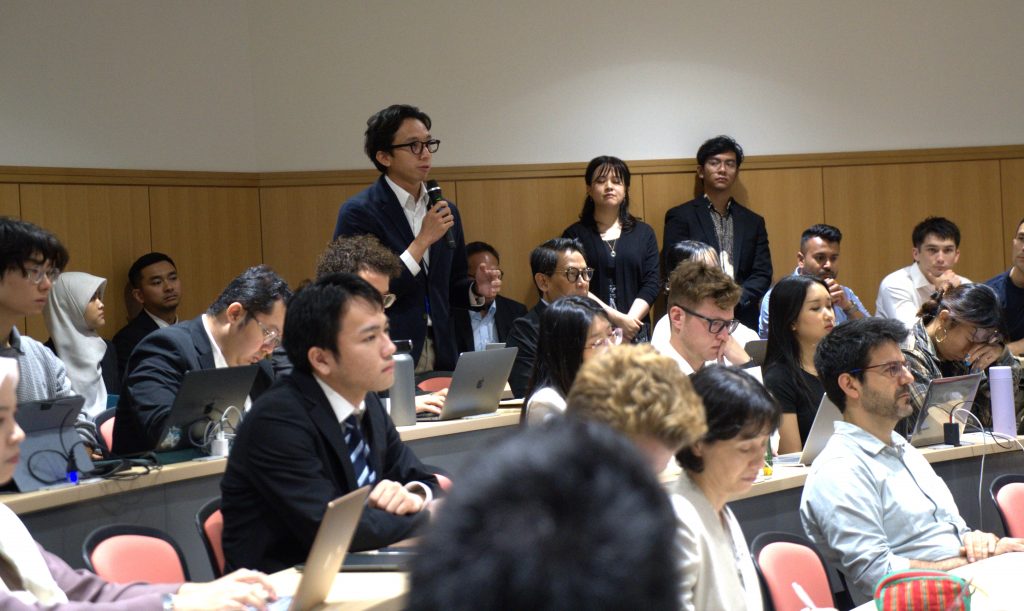
Bank Indonesia supports Indonesia’s digitalization of the economy and financial sector. The COVID-19 pandemic has shifted people’s attitudes and preferences toward the digital economy. The pandemic was the “chief of transformation.” We have seen emerging local unicorns. The number of Internet users is 74% of the population.
Quick Response Code Indonesian Standard(QRIS) transactions have grown, and users reached 49 million in April 2024. It helped increase access to 32 million merchants, 92% of which are micro–, small, and medium-sized enterprises (MSMEs). QRIS is a national QR code standard to facilitate QR code payments in Indonesia, launched by Bank Indonesia and the Indonesian Payment System Association (ASPI) in 2019.

Despite the strengthening of the US dollar, the Indonesian rupiah has remained relatively stable compared with other Asian currencies. However, there are concerns about higher foreign exchange volatility. The US dollar remains dominant in international transactions. For Indonesia, the US dollar’s share as a settlement currency for exports is over 90% and for imports about 80%, while the share of Indonesia’s trade with the United States is much lower, around 10 to 20 %. Against this backdrop, Bank Indonesia has been working on its local currency transaction (LCT) framework over the past few years to reduce over-dependence on hard currencies, especially the US dollar, by encouraging using local currencies in bilateral trade and investment transactions with several countries.
Japan is among the top five countries in terms of trade and investment with Indonesia, indicating optimism for stable growth for both countries. Furthermore, local currency settlement transactions between Indonesia and Japan have increased to reach $1.4 trillion equivalent during the first four months of 2024, compared to $1.4 trillion equivalent throughout 2023. The seven Indonesian and five Japanese banks have been acting as appointed cross-currency dealers (ACCDs) to cooperate and undertake rupiah-yen transactions to strengthen the rupiah-yen settlement framework.
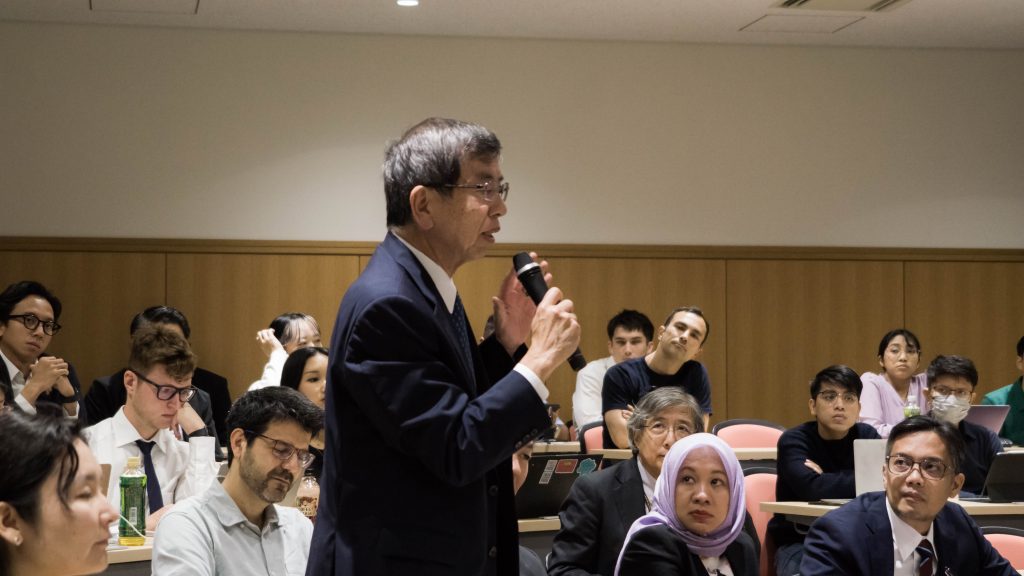
There are many opportunities to encourage LCTs for business actors. Japan’s automotive sector has good potential to utilize LCTs since it has many supporting business lines on and outside Java Island.
Speaker
Destry Damayanti serves as Senior Deputy Governor of Bank Indonesia from 2019 to 2024 and is a member of Indonesia Deposit Insurance Company’s Board of Commissioners ex-officio from Bank Indonesia for the 2020 to 2024 period. Before her current roles, she went through several notable positions both in private and public institutions, including a senior economic adviser for the British Embassy from 2000 to 2003, a researcher and lecturer at the University of Indonesia from 2005 to 2006, and the Chief Economist for Mandiri Securities from 2006 to 2011. She served as the Chief Economist of Bank Mandiri from 2011 to 2015, as the head of the Economic Task Force under the Ministry of State-Owned Enterprises from 2014 to 2015, and as a member of the Indonesia Deposit Insurance Corporation’s Board of Commissioners from 2015 to 2019. Destry Damayanti was appointed Chairperson of the Corruption Eradication Commission Selection Committee from 2015 to 2019. She earned a Bachelor of Economics from the University of Indonesia before receiving a Master of Science in Regional Science from Cornell University in the United States.
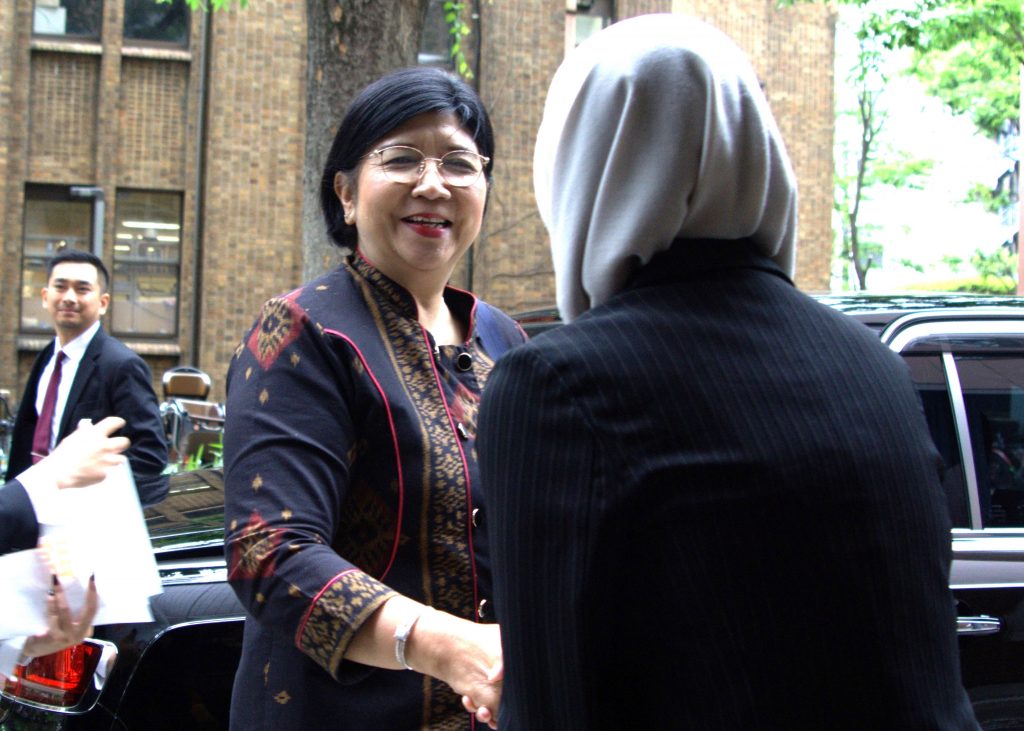

This GraSPP Research Seminar, one of its Economic Policy, Finance & Development Series, was made possible by the co-hosting of the Asian Development Bank Institute (ADBI) and Bank Indonesia Representative Office in Tokyo. The hosts are grateful for the assistance provided by a team of student volunteers, Amelia Dhiena Berliani, Rachel Ho, and James Cahyadi Purnomo, and the research seminar support staff, Megumi Aoshima and Aoi Ohno. Oskar Weihs, another student volunteer, assisted in the preparation of this summary.
Toshiro Nishizawa, Professor, Graduate School of Public Policy


